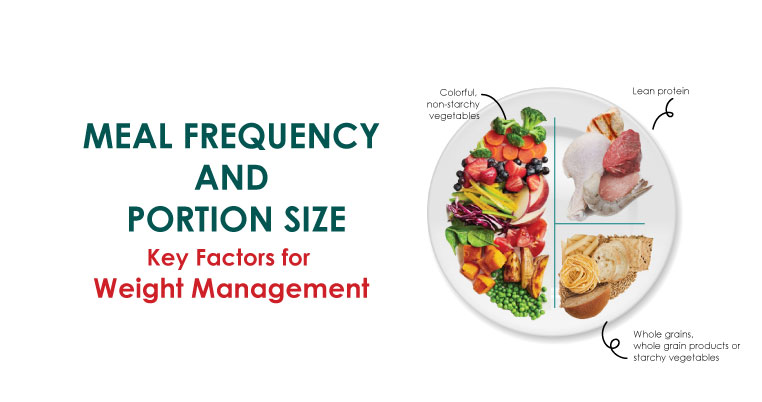The issue of timing of meals for weight management strategy has become a crucial aspect of nutrition and wellness. While most people put their attention only on what they eat, research is becoming more and more indicative of how, as is the case, what you eat can play an equally important part. Fronted eating, in fact, will improve your digestion, it will regulate your metabolism, and you will also be less likely to overeat later on in the day. This approach offers a sustainable approach to weight management in the long term.
When you learn the science of meal timing, you will have a practical tool to use when controlling body weight without feeling deprived. Rather than fighting compulsively, the appropriate diet routine wins time for you to connect ordering with your organic stretching. This ensures not only the burning of fat, but it also keeps you stable in energy throughout the day, making it easier to stay on the right track.
The Role of Breakfast in Weight Control
Breakfast is one of the most controversial elements of eating for weight loss. A well-balanced breakfast gives a boost to your metabolism after 8 hours of fasting overnight. By supplying your body with vital nutrients in the first part of the day, it tells your body that you have energy and you’re less likely to go for too much in the rest of the day to compensate for your message. Research has been conducted that attributes consumption of breakfast to better concentration and better weight results, proving how important it is to set the tone for the daily diet.
And skipping breakfast in turn yields poor results. Otherwise, some people think it saves calories; however, this habit has a tendency to fuel mid-morning hunger spikes, which leads them to choose high-calorie snacks. This derails appetite control and has the potential to impair metabolic efficiency. A meal that incorporates protein, complex carbohydrates, and fiber into breakfast is not only beneficial for weight loss but also helps to jump-start with energy in the long term.
Importance of Lunch Timing of Meals for Weight Management
Lunch is the most important meal of the day when it comes to ensuring constant energy and preventing nighttime cravings. Lunch too late can cause blood sugar to dip, which then leads to fatigue and the need for sugary food. Eating a meal at approximately the same time each day will ensure that your body receives nutrients when it most needs them, which controls the hunger hormones (leptin, ghrelin).
A proper combination of lean protein, healthy fats, and whole grains will, in the long run, help create a balanced meal that will prevent afternoon slumps and keep weight in check. By having this meal between noon and 2 p.m., you help to keep your eating habits healthy and avoid the risk of overeating at night. If we look at it from a metabolic perspective, the yard end part is not only the quality of food we eat but also when we eat it, since it directly affects our metabolism and the efficiency with which the body burns calories.

Dinner Timing and Its Impact on Fat Loss
The biggest component of long-term weight loss control is often the timing of dinner. Research also shows that late-night eating is a cause of weight gain because the body’s metabolism tends to be slower at night. Also, the longer meals, grandiose meals just before sleep, are one of the major reasons why you will tend to add more calories to your body only in the form of fat instead of using up these calories for generating energy. So eating dinner at least two to three hours before bed is one of the most practical answers for the management of weight in a good manner.
Light meals in the evening are also good. A dinner low in calories, high in vegetables, lean protein, and portions of whole grains also makes you feel full without adding too much to your digestive system. Combined with basic meal timing from earlier times, this approach will promote fat loss, improved sleep, and overall better metabolic health. This is an important point, as there are so many tiny changes you can make when eating that yield extreme benefits for weight.
Intermittent Fasting and Meal Timing Strategies
Intermittent fasting has become popular as an intended method with a more direct correlation in timing regulations of meals meant for weight management and weight loss from the storage of fats. This way, by avoiding eating certain times of the day (for example, the 16:8 approach), the body is forced to burn stored fat more efficiently. This habit is subject to the circadian rhythm of the body, which corresponds to improvements in metabolism and improved blood sugar control. Intermittent fasting, as opposed to focusing on counting calories, focuses on the timing of eating instead of constant dieting.
For many people, knowing your weekly plan is an easy way to be nutrition-conscious about what you eat throughout the week and make it easier to avoid unhealthy snack foods. It also enhances insulin sensitivity, which is vital to weight loss and healthy long-term living. Even though intermittent fasting is not suitable for everyone, many people who have tried it have reported noticing better appetite control, reduced levels of cravings, and consistent progress towards their fitness goals. The emphasis on timing as opposed to restriction makes management of weight sustainable.
Building a Consistent Meal Schedule for Lasting Results
A regular eating pattern is one of the most neglected strategies of weight control. When the body learns that it will be fed regularly, it adjusts itself by becoming more effective in controlling hunger signals. This helps resist the urge to snack on unhealthy foods and balances the food relationship. By focusing on the basics of a structured approach to eating breakfast, lunch, and dinner, it becomes more difficult to gain weight and feel overwhelmed.
Other health factors that are backed by consistency include sleep quality, digestive balance, and stable energy. The use of time organization and conscious selection of food is the key to long-term weight management. In addition to paying attention to the quality of nutrients in meals, paying attention to the timing of meals has the potential to establish habits that are both effective and sustainable in weight management planning.

